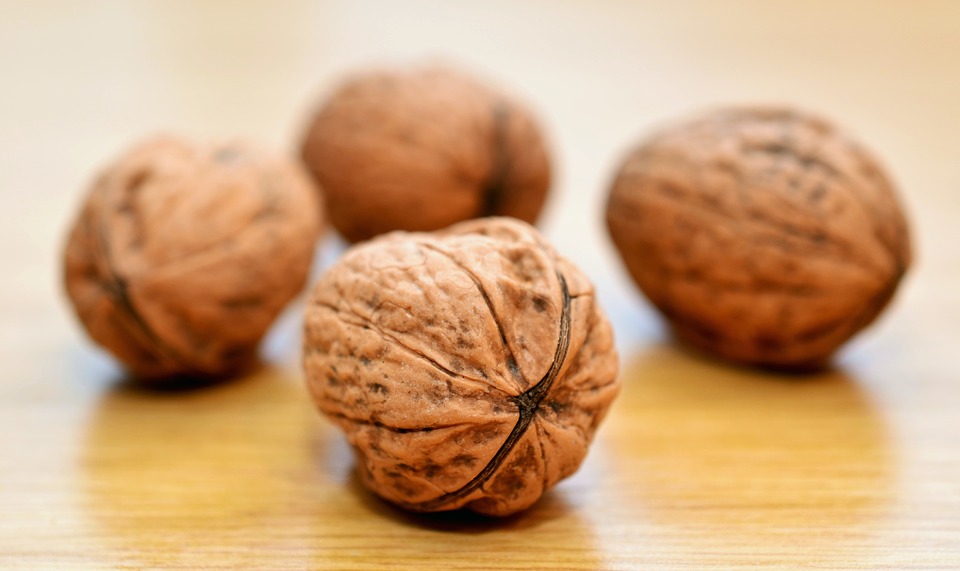Joint life insurance policy for couple...how beneficial?


Forgetting could be common, like taking the bike keys or spectacles, before leaving; or serious, like forgetting to purchase the things that you went out to get, in the first place. Taking an entirely different route, instead of the usual one, while going to work and losing one's way, could also be serious. Beware! You might forget yourself soon.
The face is familiar, but you cannot identify the person. Such kind of memory loss is quite common among many of us. However, how frequently we forget is important. Forgetfulness comes with age. But this has to be detected, as it can be resolved medically.
Various reasons
There might be many reasons for memory loss, which can be detected. They must be resolved, if the brain has to function normally. Otherwise, it will become dense. Dementia and Alzheimer are conditions of memory loss. Doctors will correct the conditions, by detecting the reasons for memory loss. Some medicines affect memory and lead to confusion. Any minor injury to the brain could also lead to memory loss.
Forgetfulness also occurs due to depression and emotional disturbances. Stress, and anxiety also result in memory loss, confusion and distraction. Alcohol can leads to serious mental disturbances and memory loss. Vitamin B12 deficiency causes forgetfulness. It is useful to keep the nerves and red blood cells active. This condition occurs mainly in elderly people, who are largely associated with forgetfulness.
Thyroid deficiency also lead to memory loss. The process of changing nutrients into energy slows down. This creates memory loss and confusion.
When to take medical support
Habitual forgetfulness needs medical intervention. A family member has to accompany the patient to the clinic, to explain to the doctor regarding the condition. A number of questions need to be answered.
Some of the questions could be: Since when are you suffering from forgetfulness? Have you used any medicines? What are they, in what dosage? Did you start taking any new medicine? In what type of activity are you facing difficulty with memory? Did you try to get rid of the problem? What is the result? Are you an alcoholic, how often do you drink in a week? Did you suffer any head injury? Were you subjected to any serious stress, anxiety or depression? Did you lose anything valuable in life or suffer any major changes? What is your daily routine? etc.
Your present state of memory is also tested. A Magnetic Resonance Imaging (MRI) or blood tests might be necessary to detect the cause. Dementia and memory related issues are dealt with neurologist, psychiatrist, psychologist and geriatricians. Memory loss in the aged is natural. Some common things like forgetting the names of persons who you met in the past, forgetting where you kept you keys or spectacles, are age related. This condition occurs normally after 40 years. It does not affect the competence of the person. In fact, this condition can be reversed. According to a study, 50 per cent of the people over 50, suffer from memory loss.Habitual forgetfulness should however, be treated. Alzheimer is serious memory loss. It occurs in one per cent of people over 60 years of age, 20 per cent of those over 85 years and 30 per cent of those over 90 years. Paralytics too suffer from memory loss. However, their condition improves with treatment.
Memory loss in the aged is natural. Some common things like forgetting the names of persons who you met in the past, forgetting where you kept you keys or spectacles, are age related. This condition occurs normally after 40 years. It does not affect the competence of the person. In fact, this condition can be reversed. According to a study, 50 per cent of the people over 50, suffer from memory loss.Habitual forgetfulness should however, be treated. Alzheimer is serious memory loss. It occurs in one per cent of people over 60 years of age, 20 per cent of those over 85 years and 30 per cent of those over 90 years. Paralytics too suffer from memory loss. However, their condition improves with treatment.
Memory loss, dementia
Dementia is defined as loss of memory, recognition skills, language skills, thinking capability and expertise. In some it starts gradually and intensifies. It affects social relations and related issues. Frequent loss of memory is related to dementia. Asking the same question, almost immediately, forgetting words in speech, using one word instead of another, using a lot of time to finish domestic tasks, misplacing things, lose one's way while walking or riding a bike, mood swings and difficulty in following instructions or advices. All these are symptoms of dementia. Alzheimer leads to dementia.
Mild Cognitive Impairment
Weak memory is Mild Cognitive Impairment (MCI). Concentration and memory are hampered. However, it is not deterrent to daily routine jobs. But it might lead to Alzheimer or other memory related issues.
Retention problem
Some do not concentrate on the subject under study. Every bit of information gathered is not stored in memory bank. It is not retained as long-term memory. It is difficult to learn more than seven things within 30 seconds in Short-term memory. Mental disturbances are hurdles to information retention. Some information is not retained as it is not necessary for the subject.
Concentrating on more than one thing at the same time also leads to forgetfulness. Sometimes clash occurs due to old and new information of the same issue. Old information might not be recollected due to the new knowledge. If some old memories are strongly rooted, the new information does not register. For example: One method of teaching is drawing a picture of a motor and explaining its parts. Getting a motor, removing its parts and explaining about them one by one, is another method of teaching. In these two, there are better chances of retention in the second method.
Failure to recall
Whatever we learn is retained by the brain. But the information is not recalled, when needed. This condition occurs as a result of not using the information that is stored in the brain, frequently enough. Recalling the information that has been stored in the past from time to time is the best method to keep it updated in memory. Otherwise, the information is locked in the brain and remains so.
Memory errors
Inability to recall information, not able to speak well, remembering something that did not happen, failure to recall exactly, are all memory lapses. Lots of people face these kinds of memory lapses. Emotional upheavals, excessive anger, disappointments, environmental changes, old age, brain damage, depression etc., lead to such memory lapses.
Blocking
"I know this news," "I have seen him somewhere, cannot recollect the name"...such statements are made due to memory blocks. Meaning to say, poor recollection of facts. It is failure to decode the information that has been encoded in the brain. Usually these keep happening with names of persons and places. This condition occurs frequently after 60 years.
Lack of Concentration
There is a saying: Body present Mind absent. Due to lack of concentration on any particular issue, it will not be retained as a strong memory. So it cannot be recalled. If facts have to be registered as long-term memory, concentration is a must. That is why complete concentration is needed while working on any project.
Misleading memory
False memory (delusions) is misleading. It means that some information that is not a fact or something did not happen is recorded in the memory as true. For example, taking something or some cash from somebody and then forgetting to return it. Supposing the owner asks to return it, there is a retort that it is already returned. This is false memory.
Nuro-toxic chemicals
Quality of food stuffs available now-a-days is low, when compared to those in the past. Many grains and flour that are bought off the shelf, are treated with chemicals. Consuming these could cause serious impairment. Processed foods like refined flour, contain harmful chemicals. They affect the functioning of the nervous system. Neurons or brain cells die even before they are completely formed, resulting in loss of memory as well as cognitive and behavioural skills.
Aspertame: This is an artificial sweetener. It is derived from a particular strain of harmful Ecoli bacteria. It has a very toxic effect on the brain. Loss of memory, migraine headache, sensory disturbances, personality disorders and autoimmune problems, arise out of this. This toxic ingredient is found in diet soda, gum, packaged curd and processed snacks.
MSG: Mono-sodium Glutamate (MSG) is an artificial salt (Ajinomoto). It is found in processed snacks. Once they are consumed, MSG activates the brain cells. This triggers addiction to these snacks. They are consumed constantly to keep the brain active for long periods. Ultimately, the brain cells die of exhaustion. Memory, cognitive and analytical skills are lost.
Artificial colouring agents: Red Dye 40 and Yellow 5 that give a good colour to food stuffs, actually cause serious harm to the brain, it has been proved in studies. Its effect is more on the growing brains of children. Star-like marks appeared on the Right Quadrant of the brains of children who consumed foods mixed with Red Dye 40, as detected in CT Scan. This part of the brain deals with emotional expressions.
Pesticides: Pesticides are harmful to humans. It is common these days to use pesticides on crops that are meant for human consumption, to protect them. The same pesticides are consumed along with food grains. Several studies have showed that they affect the nervous system and lead to dementia.
Sucrose: It is an artificial sweetener . It should never be used instead of sugar. It affects the nervous system. With this, there is memory loss, headache, depression and lack of concentration and increased anxiety.
Auto-immune diseases
People suffering from auto-immune diseases usually have loss of memory as well as cognitive skills. Multiple sclerosis, Greaves disease, Lupen, Jargon aphasia, are auto-immune diseases that are caused due to the malfunctioning of the nervous system.
Chronic Candida Infection
This is a kind of yeast (very minute parasite). It grows around the intestines and the uterus. However, it is beneficial to health. But its uncontrolled growth leads to it being absorbed into the blood, leading to several other complications. Taking food without nutrients, overuse of antibiotics, birth control pills, non-sterilized anti-inflammatory (NSAID) analgesics, mercury, alcohols etc., leads to weakening of the digestive system, thereby causing growth of yeast. Symptoms of Candida yeast syndrome are brain fog, lack of memory or competent learning, chronic yeast infections, frequent colds, discomfort in lower abdomen, bloating, gastric problem and extreme fatigue.
Lack of sleep
Those facing insomnia have difficulty in grasping information and retaining it. An hour-and-a-half of sleeplessness every night, leads to 32 per cent less activity during the day. Lack of deep and uninterrupted sleep leads to taking of teas and energy drinks, besides feeling fatigued.
Alcohol
There is a permanent loss of memory in those who consume alcohol regularly. The activity of Hippo campus in the brain is affected due to alcohol. The functioning of this is important for remembering one's own self as well as having a clear memory.
Deficiencies in growth
Autism, ADHD, Aspersers syndrome and such diseases cause short term memory loss, lack of concentration, disability to read and write, etc.
Stress should be decreased
Stanford University researchers said that there will be good results in ridding oneself of memory loss by decreasing stress. Cortisol that is released during stress leads to weakening of the transfer of information between nerve cells in the brain. There is a chance of putting an end to memory problems by getting rid of stress.
Food to increase concentration and memory
If lack of nutritious diet is cause for memory loss, it can be restored by taking the right diet. Even age-related memory ailments can be overcome with nutritious diet.
Caffeine, sugar
Caffeine gives energy. It improves concentration. Sugar again energises brain cells. Sweets and glucose released by carbohydrates in the body help in increasing memory. But even this should be taken in essential quantities. Too much of it again cause memory disturbances.
Breakfast is a must
Eating breakfast is a must for everyone. Memory and concentration improves in those who eat a wholesome breakfast daily. Several studies have proved that students, who have good breakfast, are good at studies rather than those who do not. Whole grains, milk, dairy products and fruits help in memory power. Yet again, experts have made it clear that breakfast should be light and not heavy, in which case it could be counter-productive.
Fatty Acids
There are millions of nerve cells in our brains. They are made out of fats or lipids. So they should be fed with essentially fatty acids. That's why it is better to use oil extracted from flax seeds, seeds and vegetables. But be away from trans fat or saturated fats. Omega fatty 3 and fatty6 acids are essentially fatty acids. These are abundant in flax seeds, walnuts, soya bean, canola, wheat germ and fish. Many studies have proven that in those who consume foods with Omega fatty3 acids, problems like dementia, stroke and weakening of brain function, is reduced. Fish should be consumed twice a week to keep the brain and heart healthy.
Nuts, Chocolates
Omega Fatty3 acids and anti-oxidants are abundant in walnuts. Anti-oxidants are found in Dark Chocolates. Caffeine in chocolates improves memory. Good results can be achieved by taking at least 28 gm of walnuts and dark chocolates daily.
Avacado, whole grains
Blood supply is essential for every part of the body. It's functioning depends on the supply of adequate blood. More so, on the brain and heart. By consuming Avacado and whole grains, heart problems can be resolved. With this, blood supply increases. The brain will have enough blood supply and oxygen. With this, the brain cells will be active. Among whole grains, popcorn and whole wheat are the best.
Blue Berries
Blue berries are good for the brain. They have the capacity to protect the brain cells from damage, because of the presence of free radicals. Blue berries reduce the risk of alzheimer and dementia that occur due to old age. Nerve cells function well. Also, black berries, apples, turmeric, coconut oil and butter give good nourishment to the brain.
Nutrients...vitamins and minerals
Food should be rich in nutrients. Concentration is lost when the food does not contain minimum nutrients. The same condition occurs when the quantity of food consumed is either more or less than required. In some others, despite consuming nutritious diet, there might be a deficiency of vitamins. This is due to digestion problems.
Vitamin Deficiency
Deficiency of Vitamin B12 causes weakening of memory power. As one gets old, the capacity to absorb B12 reduces. That is why aged people must compulsorily consume Vitamin B12. It is available in animal products. The deficiency of Vitamin B12 is seen mostly in vegetarians. Magnesium deficiency is also the cause of memory loss. Cognitive sensors also get weakened. Memory power is reduced and there is lack of concentration.
Food containing Vitamin A, B, C, E, Zinc and Magnesium should be taken daily. Otherwise, Vitamin and mineral supplements should be taken with doctors advice. Bacteria that get accumulated in our bodies due to our daily activities and harmful substances we breathe from the environment, are in the form of free radicals that have to be neutralized by anti-oxidants.
These also...
Adequate amounts of water and sleep are important to keep memory fit. Daily exercise is a must. Yoga and Meditation give good results.
Cholesterol, BP
High blood pressure and cholesterol have adverse effect on memory. They also cause the advancement of the disease. Good social relations also help in keeping memory intact.
Brain has to be sharp
You can protect your memory just by reading, writing or playing puzzles. Brain cells are activated because of this.
Useful tips
There are better chances for remembering things by focussing on one thing at a time. If you forget where you have kept something (for example: spectacles, phone), it would useful to remember the other things surrounding it. Also, if something is placed constantly at one place, it would be easy to remember. If anyone tells you something, repeat it once loudly. By this you will never forget any instruction. Moreover, the other person will realise that you are attentive. Remember things and ideas as pictures in your mind. This is the best method to recall them easily, later.
Conclusion
If you are struggling with any of the above mentioned conditions related to memory power, remember the causes for it. Take nutritious food and have adequate sleep. Stress, emotional disturbances, and aggressiveness should be avoided. Increase social relations and be happy. Be active all the time. If there is deficiency of any nutrients, consult a doctor and take supplements. Apart from this, if memory loss is due to some injury to the brain or because of age-related problems of the nervous systems, special treatment should be taken by consulting with doctors.



















